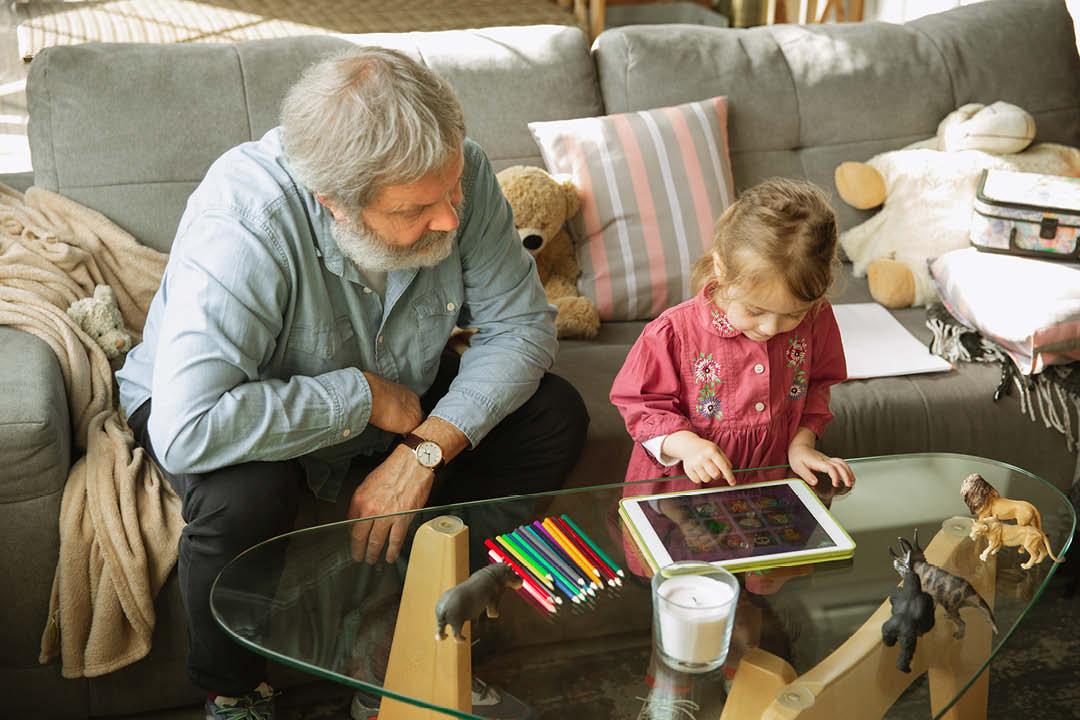Retirement isn’t always something that people look forward to. It may be forced upon them through ill health, it may be because they can’t do their job as effectively, or it may be because it isn’t everything it promised it would be. Many people feel that they have lost their identity.
Retired people are twice as likely to report feeling symptoms of depression than those who are still working. Research from the London-based Institute of Economic Affairs found that the likelihood that someone will suffer from clinical depression actually goes up by about 40% after retiring.
So how, when you stop the career that you have been working on for decades, the one with goals, deadlines, motivation and a busy life, can you make the most of the time you now have plenty of? Here are 10 top tips.
Take it slowly!
You don’t need to retire in one big bang! You could try retiring in stages by easing off over several years. Why not start by going part-time?
Grandchildren
Grandparents who can give and receive support from grandchildren are less likely to be depressed. If you have grandchildren, spending active play time with them can help you stay healthier and it’s important for the children’s wellbeing as well. Anything from board games to walking or visiting the park.
Eat well
You probably had a pattern of eating when you were working. Try not to divert from that too much, but why not introduce some recipes that you may not have had time to do previously? Eat out more frequently if finances allow?
Keep physically active
In retirement, the government suggests that we take part in ‘moderate-intensity activity’, and government guidance suggests that adults aged 65 and over should do 150 minutes of ‘moderate-intensity activity each week’. This could be introduced through walking, the gym, volunteering outside, cycling, taking up a gentle sport etc; it depends on your level of fitness prior to retirement, of course.
Keep in touch with your friends from work
Just because you are retiring doesn’t mean you have to lose touch altogether with the people that have been with you most days. Make plans for dinner parties, barbecues and days out to ensure you keep in touch. One invitation often leads to another.
Give back
Ever thought of volunteering? If your job had specific skills that might be useful in the voluntary sector, then you might be able to get involved with something within your own community; youth clubs, helping out in a local charity, sport, supporting the elderly, training etc.
Travel
If your job didn’t involve travel – then now’s the time to fix that! There are plenty of opportunities to visit somewhere that you’ve always wanted to visit; cruises, painting holidays, walking, relaxing on a beach, wine tasting, camping, city breaks etc.
Get technical
Most people have a simple grasp of technology, but if you got left behind then now’s the time to learn! It can really allow you to do a lot of things; book those holidays, explore all those new and exciting places to visit and keep in touch with friends and family all over the world!
Get a dog
There are proven emotional benefits bestowed by their unconditional love of us, and one study even found that dog owners need fewer doctor visits. Another study from Australia found that pet owners had lower cholesterol, lower blood pressure and a lower heart attack risk than people without pets; that could also be because it insures that we get a walk every day too!







